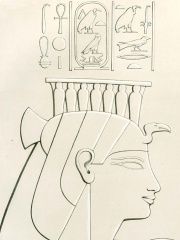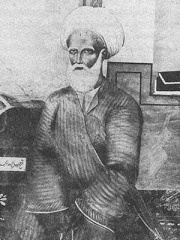Companion
Abd-Allah ibn Umm-Maktum

 Abd-Allah ibn Umm-Maktum
Abd-Allah ibn Umm-Maktum
Abd-Allah ibn Umm-Maktum was a companion Abd-Allah ibn Umm-Maktum died at 0 years old in NaN.
His biography is available in 25 different languages on Wikipedia (up from 23 in 2024). Abd-Allah ibn Umm-Maktum is the 559th most popular companion (down from 506th in 2024), the 179th most popular biography from Saudi Arabia (down from 172nd in 2019) and the 18th most popular Saudi Arabian Companion.
Memorability Metrics
Page views of Abd-Allah ibn Umm-Maktum by language
Among Companions
Among companions, Abd-Allah ibn Umm-Maktum ranks 559 out of 784. Before him are Christian II, Elector of Saxony, Charlotte of Bourbon, Junia Claudilla, Joanna of Bavaria, Abu Salama, and Neslişah Sultan. After him are Empress He, Princess Helena Adelaide of Schleswig-Holstein-Sonderburg-Glücksburg, Beatrice Regina della Scala, Mutemwiya, Cleopatra of Pontus, and Joanna of Aragon, Queen of Naples.
Most Popular Companions in Wikipedia
Go to all RankingsChristian II, Elector of Saxony
1583 - 1611
HPI: 62.82
Rank: 553
Charlotte of Bourbon
1546 - 1582
HPI: 62.78
Rank: 554
Junia Claudilla
17 - 36
HPI: 62.78
Rank: 555
Joanna of Bavaria
1356 - 1386
HPI: 62.73
Rank: 556
Abu Salama
600 - 625
HPI: 62.68
Rank: 557
Neslişah Sultan
1921 - 2012
HPI: 62.68
Rank: 558
Abd-Allah ibn Umm-Maktum
HPI: 62.68
Rank: 559
Empress He
200 - 189
HPI: 62.64
Rank: 560
Princess Helena Adelaide of Schleswig-Holstein-Sonderburg-Glücksburg
1888 - 1962
HPI: 62.63
Rank: 561
Beatrice Regina della Scala
1333 - 1384
HPI: 62.61
Rank: 562
Mutemwiya
1500 BC - 1400 BC
HPI: 62.55
Rank: 563
Cleopatra of Pontus
200 BC - 100 BC
HPI: 62.54
Rank: 564
Joanna of Aragon, Queen of Naples
1454 - 1517
HPI: 62.53
Rank: 565
In Saudi Arabia
Among people born in Saudi Arabia, Abd-Allah ibn Umm-Maktum ranks 179 out of 354. Before him are Aqil ibn Abi Talib (590), Abdul-Rahman ibn Abi Bakr (null), Muhammad ibn Maslamah (589), Shaykh Ahmad (1753), Saʽd ibn ʽUbadah (580), and Majed Abdullah (1959). After him are Adi ibn Hatim (550), Asma bint Umais (null), Lubaba bint al-Harith (593), Abu al-Aswad al-Du'ali (603), Umm Ruman (null), and Saleh Al-Fawzan (1933).
Others born in Saudi Arabia
Go to all RankingsAqil ibn Abi Talib
RELIGIOUS FIGURE
590 - 670
HPI: 63.02
Rank: 173
Abdul-Rahman ibn Abi Bakr
MILITARY PERSONNEL
HPI: 62.94
Rank: 174
Muhammad ibn Maslamah
COMPANION
589 - 666
HPI: 62.83
Rank: 175
Shaykh Ahmad
RELIGIOUS FIGURE
1753 - 1826
HPI: 62.83
Rank: 176
Saʽd ibn ʽUbadah
POLITICIAN
580 - 636
HPI: 62.78
Rank: 177
Majed Abdullah
SOCCER PLAYER
1959 - Present
HPI: 62.77
Rank: 178
Abd-Allah ibn Umm-Maktum
COMPANION
HPI: 62.68
Rank: 179
Adi ibn Hatim
COMPANION
550 - 700
HPI: 62.26
Rank: 180
Asma bint Umais
RELIGIOUS FIGURE
HPI: 62.21
Rank: 181
Lubaba bint al-Harith
RELIGIOUS FIGURE
593 - 655
HPI: 62.18
Rank: 182
Abu al-Aswad al-Du'ali
LINGUIST
603 - 689
HPI: 61.98
Rank: 183
Umm Ruman
COMPANION
HPI: 61.69
Rank: 184
Saleh Al-Fawzan
RELIGIOUS FIGURE
1933 - Present
HPI: 61.47
Rank: 185
Among Companions In Saudi Arabia
Among companions born in Saudi Arabia, Abd-Allah ibn Umm-Maktum ranks 18. Before him are Jabir ibn Abd Allah (607), Abd-Allah ibn Jahsh (580), Muhammad ibn Abi Bakr (631), Abbad ibn Bishr (606), Al-Khayzuran (701), and Muhammad ibn Maslamah (589). After him are Adi ibn Hatim (550), and Umm Ruman (null).
Jabir ibn Abd Allah
607 - 697
HPI: 66.91
Rank: 12
Abd-Allah ibn Jahsh
580 - 625
HPI: 64.91
Rank: 13
Muhammad ibn Abi Bakr
631 - 658
HPI: 64.73
Rank: 14
Abbad ibn Bishr
606 - 632
HPI: 64.08
Rank: 15
Al-Khayzuran
701 - 789
HPI: 64.01
Rank: 16
Muhammad ibn Maslamah
589 - 666
HPI: 62.83
Rank: 17
Abd-Allah ibn Umm-Maktum
HPI: 62.68
Rank: 18
Adi ibn Hatim
550 - 700
HPI: 62.26
Rank: 19
Umm Ruman
HPI: 61.69
Rank: 20





























